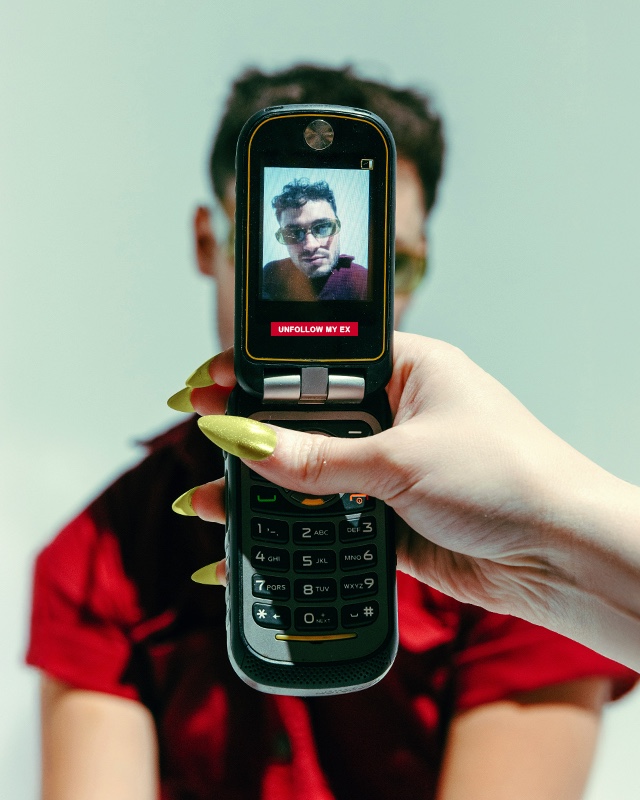The Digital Detox No One Talks About
It starts innocently enough. You’re scrolling. A late-night glance turns into a five-minute deep dive. A tagged photo. A story repost. Their new haircut, their friends, and a vacation that looks suspiciously like the one you planned together. You’re not texting them anymore, but you’re still in the loop—passively, digitally, obsessively. And whether you admit it or not, it’s messing with your head.
In a culture that rewards constant connectivity, digital breakups remain the one form of closure that somehow feels too “dramatic” to commit to. Blocking? Extreme. Unfollowing? Petty. Muting? Almost laughably polite. But research tells a different story—and it’s one worth listening to if you’re genuinely trying to move on.
The Science of (Not) Letting Go
Dr. Tara Marshall, a psychologist at Brunel University Research Archive(BURA), studied post-breakup behavior and found that those who stayed connected to their exes via social media experienced more emotional distress, longing, and difficulty moving forward than those who severed ties completely.
Marshall writes that participants “who remained Facebook friends with the ex-partner, relative to those who did not remain Facebook friends, reported less negative feelings, sexual desire, and longing for the former partner, but lower personal growth.” Translation: “being chill” about your breakup online doesn’t mean you’re emotionally mature—it means you’re voluntarily prolonging your pain.
And this isn’t just anecdotal. A 2020 study in the journal Cyberpsychology, Behavior, and Social Networking confirmed that digital contact with an ex, especially passive consumption of their posts, can reignite attachment and interfere with emotional detachment. Your brain doesn’t register a difference between real-world and online interactions. So every time you see them, your system goes back into intimacy mode.
It’s not nostalgia—it’s neurochemistry. And it’s not helping.
The “Casual Curiosity” Trap
You might think you’re just looking and not engaging. Not reacting. Never reaching out. But social media isn’t a neutral space. Every scroll reinforces a cognitive bias called “intermittent reinforcement”—the same psychological principle that makes slot machines addictive. The occasional dopamine hit of seeing them looking good, appearing happy, or—worse—dating someone new activates your reward system and keeps you returning for more.
You’re not stalking. You’re chemically self-sabotaging.
This makes navigating “just staying friends” complicated in a digital world. It creates a false sense of closeness without any of the safety, reciprocity, or clarity that defines actual friendship. You’re not in their life—you’re orbiting their highlight reel.
Digital Boundaries Are Emotional Boundaries
It may be helpful to call unfollowing what it is: a psychological boundary. Not a tantrum. Not a game. And not a cry for attention.

Unfollowing is a quiet, powerful act of self-respect. It says: I don’t need reminders of someone I’m trying to disconnect from emotionally. It’s choosing emotional clarity over performative maturity. And that is anything but petty.
Setting digital boundaries is part of protecting your peace. You have every right to decide what shows up in your feed and what doesn’t. Choosing distance isn’t mean—it’s mindful. You’re not erasing someone to be cold; you’re editing your environment to support your healing.
Why We Struggle to Let Go
One reason unfollowing feels so hard is that we confuse presence with proof. Seeing their posts reassures us that the relationship happened, that the feelings were real, that we haven’t been erased. There’s a loss of narrative when someone disappears from your digital world.
But closure doesn’t require visibility. It requires acknowledgment—sometimes, that means acknowledging that staying digitally connected prevents you from reclaiming your perspective. You can’t rewrite the story if you’re still reading theirs.
The Digital Detox Myth: Why You Don’t Need to Keep Following Your Ex
There’s an idea floating around social media that truly mature people don’t unfollow their exes. If you’ve genuinely evolved, the story goes, you should be able to casually scroll past their vacation photos or new relationship updates without a twinge of jealousy or sadness. But digital proximity isn’t neutral. Staying connected online often means staying emotionally tangled—triggering subtle pangs of nostalgia, loss, or lingering hope every time you refresh your feed.
Before you make a move, check your motives. Ask yourself:
- Do I feel worse after seeing their content?
- Am I comparing their apparent happiness to mine?
- Am I secretly hoping they’ll notice I’m still watching?
- Am I hesitating because I don’t want to “look bad”?
If your answers are more about ego than healing, it’s time to log off and reassess. Emotional maturity isn’t about managing perception—it’s about managing energy. You don’t owe anyone your digital presence if it costs you peace of mind.
Wanting to maintain some form of connection is natural. But digital detox isn’t about being dramatic or spiteful. It’s recognizing the real psychological costs of constant virtual exposure. Every notification, post, or story from your ex can subtly activate emotional circuits meant for attachment and connection—not for detachment and recovery.

Muting, Unfollowing, Blocking—What’s Right for You?
Think of this as a spectrum, not a script.
- Muting is excellent if you need a quiet pause without drawing attention. It’s subtle, non-confrontational, and can be a good transitional step.
- Unfollowing is more assertive. It signals you’re ready to stop performing the illusion of a casual connection. It doesn’t erase history—it just clears your dashboard.
- Blocking is for when you need real space. It’s a hard boundary, often necessary in cases of toxicity, obsessive scrolling, or lingering emotional hooks.
Choosing to mute, unfollow, or block isn’t petty; it’s proactive. It’s not about erasing your history—it’s about curating your online environment to support emotional clarity and healing. Real maturity doesn’t come from endlessly testing your emotional limits. Sometimes, the smartest, healthiest move is a simple digital boundary: quietly removing reminders that no longer serve your peace.
FirstDate Final Thought: Healing Is Private Work
Moving on isn’t always visible. It doesn’t happen in a glow-up montage or through strategic thirst traps. It happens when you stop checking for updates, when your mind doesn’t immediately reach for them in moments of stillness. And when their life becomes more interesting, but somehow seems irrelevant to you.
That kind of healing rarely happens when your ex still shows up between your brunch pics and news updates.
So maybe the bravest, most radical breakup move isn’t broadcasting how over it you are. It’s silently hitting “unfollow” and meaning it.








